Oh, Game of Thrones, you have done me dirty. You have done the world dirty. And worst of all, you have done yourself dirty. It was just last year that you were concluding your epic tale of swords and sorcery with a limp fart, some half-baked excuses about things like “foreshadowing,” and how you honestly meant for it to look that dark. Countless pages of virtual ink have been composed to discuss how, when, and why things got so bad. The eulogies and autopsies for what used to be one of the most popular and beloved series of all time have spread far and wide.
But Game of Thrones, that’s not what I’m here for today. You’ve been too good to me over the years. In an era where it couldn’t be easier to binge-watch a show through any number of streaming services after its conclusion, you were one of the few that made me want, nay, need to actually watch every episode as it was released—partially to avoid spoilers (which were plentiful, considering how invested we became in your various characters and factions), and partially to engage in heated water-cooler debates about what certain actions meant, what great or cruel destinies await our band of refreshingly three-dimensional protagonists, and of course, who was going to die next.
Every year, in anticipation for a new season, I would revisit you in your entirety up to that point, both to catch up with all the various plot points and developments, but also to revel in your unprecedented world-building, your thoroughly engaging ensemble, your breathtaking visuals, and your alternately mournful and bombastic score. Your production values for television were second to none, though many have since tried in your stead. Even though the finale has tainted your lasting impact, every network and streaming giant still wants their own Game of Thrones: something that can become more than just a well-crafted drama or an agreeable assortment of set pieces, something that people get truly passionate about. And it is in the spirit of that passion that, rather than dwell on where things went wrong, I choose instead to focus on when you shined brightest. The peak of your excellence. The height of our relationship. I choose instead to focus on Season 4.
For Your Consideration
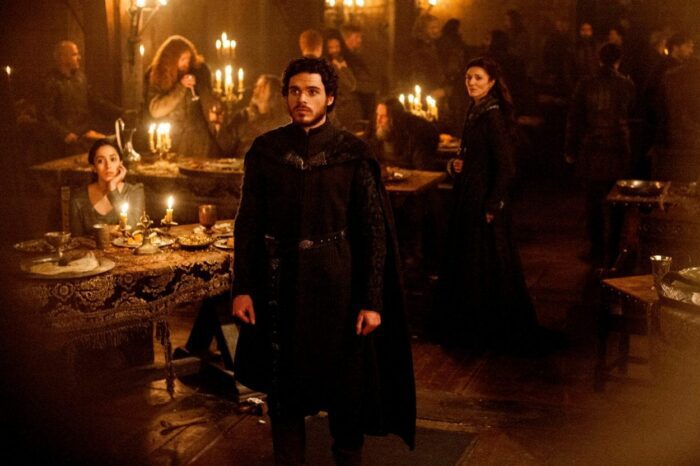
If I were to ask most casual fans, or people who are only vaguely aware of the show, to name a single event that they’ve heard of, even out of context, most of them would probably volunteer the Red Wedding. Its impact on pop culture, as well as the show itself, cannot be denied. If you had first gained infamy for your surprise execution of Ned Stark (who until that point had been presented as the hero of the story) at the end of Season 1, then the butchering of his wife, his eldest son, his daughter-in-law (pregnant with his grandson), and their entire army turned you from an admired nerd fixation into an international obsession. David Benioff and D.B. Weiss have admitted in interviews that one of their primary desires to adapt George R.R. Martin’s novels was so they could get to this scene, and the flourish with which the executions are executed leaves the viewer emotionally devastated.
So if the Red Wedding is such an iconic moment, and if it concludes Season 3 in such a definitive way, then why is Season 3 not the focus of this article? While it is indeed a worthy contender, and in my estimation comes a close second in terms of quality, the thing I find even more exciting than the Red Wedding is its aftermath. Coming at the exact midpoint of the series as a whole, Season 4 is tasked with cleaning up after the board had been completely reshuffled. In providing a solid combination of political intrigue, high-stakes spectacle, and more than a little heart, this collection of episodes managed to take all the things that you do best and dial them up to 11. You successfully took stock of everything that had come before while paving the way for future conflicts and adventures that, at the time at least, seemed just as exciting. If a madman asked me which season to watch if he were to only watch one, with no concern for any missing context or setup, then Season 4 is the one I would recommend.
The War Is Not Won
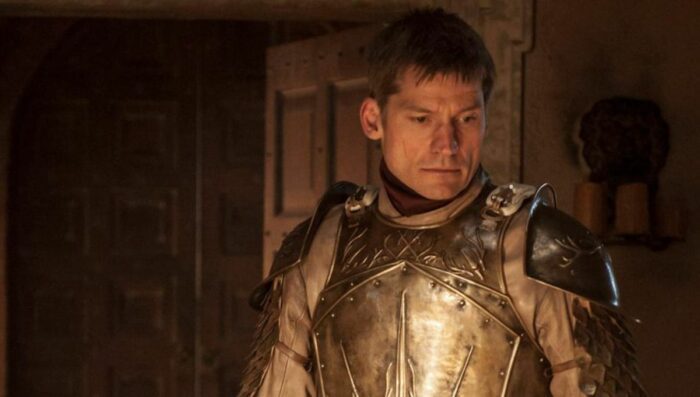
Following the decimation of Robb Stark and his forces, the ever-despicable King Joffrey is confident that the War of the Five Kings has ended. The Greyjoys are too far north and too minor to be a serious threat, Renly Baratheon is long dead, and his brother Stannis has spent the better part of a year licking his wounds and randomly burning people alive for failing to appreciate the Lord of Light. Now, Joffrey believes, is the time for celebration, which takes the form of his opulent wedding to Margaery Tyrell.
Yet no matter how slow-paced you choose to be, Game of Thrones, you do relish in upsetting our expectations and refusing to let us get comfortable. Merely two episodes in, you shake things up yet again by assassinating Joffrey, one of your most reliable sources of petty malice and viewer death threats. And to twist the knife even further, the accusation of guilt falls upon our beloved Tyrion Lannister, who has spent the bulk of his time in King’s Landing trying to do his job and failing to mask his utter contempt for the “vicious idiot” of a ruler he must serve. His manipulative sister Cersei, now wracked with grief and vengeance over the death of her son, demands Tyrion’s head. Their father, Tywin, who holds the real power in the Seven Kingdoms, seems content to allow his son to take the fall and is far more concerned with grooming Joffrey’s impressionable younger brother Tommen to be the new King.
The only one in Tyrion’s corner is his recently returned brother Jaime, who started the show as a detestable villain only to slowly evolve into a far more complicated individual. Through his relationship with the noble and undervalued Brienne of Tarth, he has shown himself capable of selfless and heroic acts, even as they chafe against his upbringing and the opinions of his family. His love affair with Cersei seems to be on hold in light of his extended absence and newly missing right hand. His relationship with his father is strained after he rejects Tywin’s plan that he return to Casterly Rock and start a family, choosing instead to remain in the Kingsguard despite his seemingly debilitating injury.
Though his straits are nowhere near as dire as the incarcerated Tyrion’s, the Lannister brothers do both find themselves on the outs with their other family members. This serves to strengthen their bond and further facilitate Jaime’s transition to goodness, ultimately paying off here in his decision to free Tyrion and help him escape. You may have gone a little wishy-washy on Jaime’s character arc after that, ultimately leaving him to get crushed by rubble with his similarly neutered sister despite all signs suggesting he was ready to move on. But in Season 4, we got a Jaime who was genuinely struggling to find a new identity and ultimately made a decision that felt satisfying and earned.
Imp, Half-Man, Scene Stealer
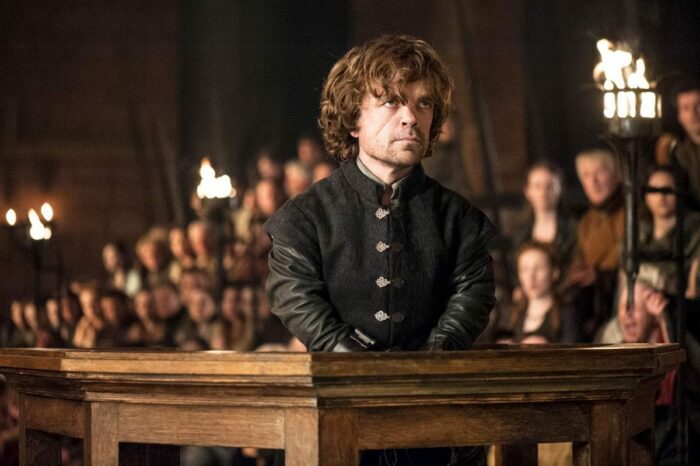
Every fan has their own favorite character, and for most of the show mine was the quick-witted and tactically brilliant Tyrion. His journey from drunken whoremonger to Hand of the King to unappreciated punching bag culminates beautifully in this particular stretch. No matter how much he may hate the individual members of his family, he has remained fiercely loyal to them throughout, only to be rewarded with accusations of murder and put on trial even though the evidence against him is entirely circumstantial. Even supposed friends like Varys and Bronn are forced to turn their backs on him to protect their own interests.
Seemingly abandoned by a world that already had little love for him, Tyrion weathers it all. But after reluctantly banishing his lover Shae in order to protect her, he now sees her brought back to slander him in court and provide false evidence to convict him. This perversion of the one thing that had kept him sane and balanced causes something to snap, and he unleashes a venomous indictment of everyone present, including and especially his father, who is, of course, running the whole show.
You have no shortage of great performers at your disposal, Game of Thrones, but this monologue is one of the greatest examples of capital-A Acting in the show’s history. Peter Dinklage skillfully conveys the anger and spite of the speech, but also the sense of wounded betrayal. When everything has been taken from him, he will not go out quietly but with a fearsome rage that belies the years of neglect and resentment he has weathered to get to this moment. When he discovers that the backstabbing goes a step further—that Shae has not only been coerced to lie against him but is now sleeping with his father—he chooses the path of no return and kills them both, definitively setting him on a new destiny far from home.
We Will Never See His Like Again
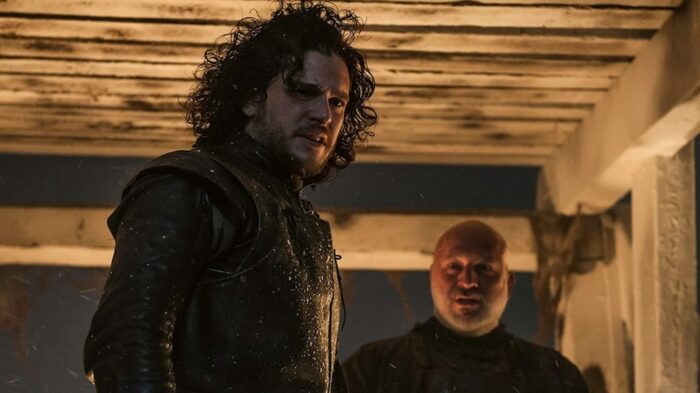
Tyrion isn’t the only character who’s fully coming into his own this season. After spending much of your runtime moping and brooding up a storm, you finally allowed Jon Snow to step up as both a leader and a character that we can root for. Like Tyrion, Jon is no longer defined by his outcast status within his family unit but by his achievements. He has spent considerable time undercover among the Wildlings, learning their strategies and how to see things from their perspective. At great personal cost, he managed to escape and return to Castle Black in order to deliver news of their imminent attack.
And for this, he is scorned and dismissed. His commanding officers believe him to be unreliable and too sympathetic to the Wildling cause. While it’s true that he has a better understanding of what they want and still loves at least one Wildling in particular, he doesn’t let that distract him from the immediate threat they pose. Despite resistance at every turn, he works hard to rally their measly forces and raise their defenses. He is also reunited with Sam, and their independent growth has given new focus to their friendship, which remains one of the most touching on the show. Their efforts to defend Castle Black culminated in one of the strongest episodes in your history, “Watchers on the Wall,” in which the focus is exclusively on the battle between the Night’s Watch and the Free Folk.
As with “Blackwater” (also directed by Neil Marshall) and many of your show’s best battle-centric episodes, there’s complexity behind the spectacle. Our sympathies are primarily with Jon and his men attempting to thwart the invaders, yet we understand the Wildling perspective just as Jon does. We know that they’re looking for safety more than domination. We like Ygritte, and we know that her rage is really fueled by the pain of Jon leaving her. We respect Tormund and enjoy his company far more than the prickly Alliser Thorne, whose bickering with Jon nearly leads to the Night’s Watch’s defeat. When the Wildling army reveals giants and mammoths within their ranks, these aren’t depicted as hideous monsters from an unknown land but rather as the last of a dying race, fighting to survive at any cost. And, after the battle, when Jon meets with the Wildling leader (and former man of the Night’s Watch) Mance Rayder to negotiate, there is a tragic sense that both characters understand and respect the other’s position and wish they were meeting under different circumstances.
But Wait, There’s More…
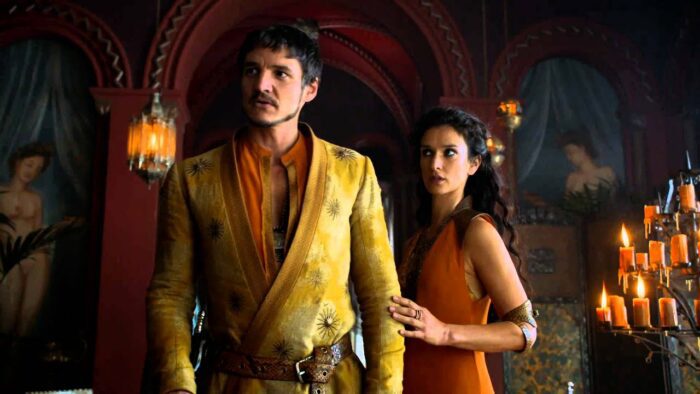
You gave us so much more to love in Season 4, Game of Thrones. I haven’t even touched on the excellent character pairings, such as Arya and the Hound, the odd couple who slowly whittle away at one another’s defenses until they simultaneously emerge both softer and hardened by the experience. There’s Brienne and Podrick, two fan favorites thrown together by circumstance who gradually learn to work as a team. When these two parties cross paths in the season finale, “The Children,” the duel that erupts between Brienne and the Hound is heartbreaking because, on some level, we don’t want either of them to lose. On an ickier note, there’s the development of Sansa and Littlefinger’s relationship, which sees him become her mentor of manipulation and sets the stage for her eventual transformation into a major player by the game’s end.
Perhaps sensing that we were starting to get overwhelmed with so many people to keep track of, you held back on introducing too many new faces this season, with the only major introduction being the delightful Oberyn Martell, who becomes Tyrion’s champion when his judgment escalates into a trial by combat. His resulting duel with Cersei’s champion in “The Mountain and the Viper” is both slickly satisfying and unbearably tragic. He shines brightly and briefly before being very gruesomely dispatched and is perhaps more memorable for how little time we spend with him. No doubt that the current fame Pedro Pascal finds himself enjoying can be attributed to his work here.
The Dragon in the Room
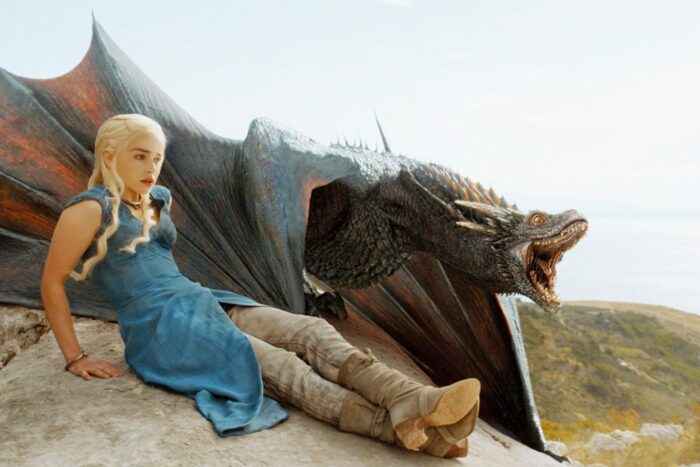
As great as the majority of it is, Season 4 is far from perfect. There are still some deeply problematic issues with the way the show treats women, all of which felt gratuitous at the time and have certainly not aged well. This is best highlighted in the queasy scenes at Craster’s Keep, when a band of rogue Night’s Watchmen have turned a farm of women into their own personal sex slaves. And then there’s the part where Jaime essentially rapes Cersei right next to the body of their dead incest son, which really doesn’t reflect well on anyone involved. Your show-runners may have insisted that the scene becomes consensual, but I think we both know it doesn’t read that way.
There are also some story problems. This is the season where Daenerys settles down in Meereen and makes the fateful decision to stay put and keep things organized there before continuing on to Westeros, stalling her plot thread for what feels like an unbearable amount of time. To her credit, she spends much of this time weighing the advice of her counselors and learning the personal cost of her mission, which upon rewatch makes her eventual turn to the dark side all the more frustrating, since you had spent so much time suggesting that she was self-aware enough to not fall into that trap.
Also, and this is a minor point, but Season 4 is where Michiel Huisman takes over as Daario Naharis, and even though he ultimately spent three seasons playing the character, he never really summoned the swagger that Ed Skrein brought to the role in a mere three episodes.
And yes, Bran and friends continue their hunt for the Three-Eyed Raven or whatever, but this plotline is too boring to warrant further discussion.
Winter Has Come
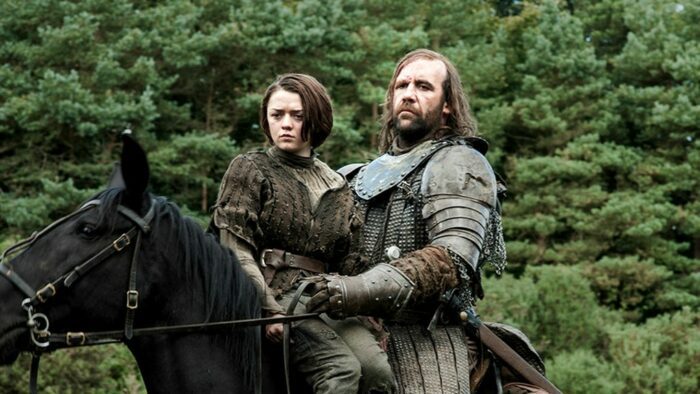
I hope you know by now how much I love you, Game of Thrones. I hope you understand that even though you’ve hurt me with your ending, and thus diminished much of my desire to revisit your earlier work, I still cherish the compelling, beautiful, heart-wrenching times that we had together. And those qualities were at their strongest here, in Season 4. You may have strayed in focus and execution as you stopped being adapted from books with thousands of pages and started being adapted from a checklist of bullet points submitted by the author. Many of the plot threads that this season sets up, such as Arya traveling to Braavos and training with the Faceless Men, or Tyrion escaping King’s Landing to join up with Daenerys, did not ultimately live up to their potential as presented here.
But maybe that’s why this is where you peaked. The drama and carnage and intrigue that had led us to this point were paving the road for a whole new dynamic between the various factions; the titular game was reconfigured in new and unpredictable ways. With the tantalizing set-up behind it and the gradual disappointment still ahead, Season 4 is where you stood proud in the world of prestige TV and rose to your greatest heights. Yours was a story of changing seasons, of shifting loyalties, of an evolving landscape where individual choices spiraled out into massive conflicts, and where a deliberate pace revealed the capacity of human beings to change, to grow, to move past their petty differences and age-old feuds in the face of a common threat.
Even if both the threat and the ensuing response proved underwhelming, this was a message that felt both urgent and deeply necessary in our own increasingly divided world. And so, Game of Thrones, I have chosen not to dwell on your ineffectual finale, but to remember the great potential you once represented. The boundless possibilities you presented in a vast world, that caused us to imagine, to believe. This is what you inspired in us, and I will always love you for it. Thank you for letting us see our own reflection and, if only for a moment, see how we could be better.

